Kenia / 12 de abril de 2017 / Por: ELVIS ONDIEKI / Fuente: http://www.nation.co.ke/
You cannot make this stuff up. Neither can you engineer it. Going through the list of registered engineers in Kenya, you will be forgiven to think it is an exclusive boys’ club with a few female names sprinkled to break the monotony.
You will count 355 men but only eight women in the list of registered consulting engineers, according to data from the Engineers Board of Kenya.
And when you go to the roll of registered professional engineers, the list tells you that if you throw a stone at 100 of them, the probability of hitting a woman is one out of 20 because there are only 86 women in a crowd of 1,597 men.
In the list of registered graduate engineers, you will equally be left in need of a magnifying glass. For every 100 heads of the registered graduates, only eight are women’s because men are 8,639 while women are just 757.
Ms Jane Mutulili Wanjiru is one of the only eight women with a government licence to operate as engineering consultants. Having been a civil engineer since 1990, she has interacted with a number of people in the field and when she spoke to Lifestyle on Thursday afternoon, she flashed back to a conversation she had had with a young engineer earlier that day.
“She called, crying. She said, ‘You know [name withheld] is really harassing me, I’m going to leave this job’. I told her ‘It’s okay, I’ll deal with it’,” said Ms Wanjiru
“She’s an assistant resident engineer. And you know, when you’re a resident engineer, you actually check the quality of work by the contractor. So, when the contractor tries to take shortcuts and you want to report, they really start harassing you so that you don’t go to the site,” she said.
Harassment from various quarters is but one of the many challenges that women in engineering face every day, and they have been organising meetings to compare notes on how best to cope.
They have also been plotting how to inspire and attract more women into the profession.
Their latest meeting was held on April 1 in Nairobi’s Silver Springs Hotel — themed around positioning women engineers for leadership — where the guest speaker was Gender Cabinet Secretary Sicily Kariuki. Mrs Kariuki did not attend but was represented by Mrs Zeinab Hussein, one of her Principal Secretaries.
From Mrs Kariuki’s speech, it emerged that even for the few women engineers who have been hired by various government agencies, just a small percentage has been given leadership roles.
“Less than one per cent of the senior engineering management positions are held by women in the infrastructure sector bodies. There are only three women professional engineers who are board members in the public sector,” Mrs Kariuki’s speech read in part.
FEW AMONG MANY
She added: “This is a situation my ministry would like changed within our mandate of gender mainstreaming and I am happy you have made the first significant step in this respect by forming yourself into an association and organising this conference.”
As she officially closed the gathering, Mrs Kariuki challenged the women to be “clear about what you want”.
Following last Saturday’s meeting, which was organised by the Women Engineers Chapter of the Institute of Engineers of Kenya, Lifestyle interviewed five women engineers to share their experiences in the male-dominated profession.
Besides Ms Wanjiru, we spoke to Mrs Margaret Ogai, Ms Grace Apiyo, Ms Emily Kilogi and Ms Lucy Wanjiku.
Mrs Ogai is the senior manager in charge of contracts at Kenya Roads Board. An alumnus of Limuru Girls’ High School, she has risen in the civil engineering field since graduating from the University of Nairobi in 1990. She worked in three consultancy firms before joining the Kenya Roads Board in 2002.
“For the first 12 years when I worked in Kenya Roads Board, I was the only woman engineer. But now we’ve been fortunate. We have employed three others,” said the mother of two teenagers.
Ms Apiyo is currently the project manager in charge of technical vocational programmes at ArcSkills, a training institution in Nairobi that is part of a global network.
She was in the class of 1997 at Pangani Girls’ Secondary School, and she obtained her engineering degree in electrical and electronics from the University of Northumbria in Newcastle, England.
“My career started at the Ministry of Public Works. And for a while, I was the only female engineer in that department with more than 70 men. And because when I first joined I was very small (in physique), I was easily intimidated,” said the mother of a six-month-old girl.
Ms Kilongi is the technical manager at Athi Water Services Board, the institution overseeing water and sewerage provision in Nairobi and Kiambu counties.
She owes her education to Pangani Girls, where she left in 1998, and the Jomo Kenyatta University of Agriculture and Technology where she obtained her Bachelor of Science in civil engineering in 2005.
“In my civil engineering class, we were five women against 20 men. And at that time, our class was the biggest that the university had seen in terms of the population of women. Previously there used to be one or two. There is even a year which had no lady at all,” said Ms Kilongi, a mother of three.
Ms Wanjiku is the founder and director of EcoCycle, a company that installs systems that enable organisations recycle their waste water — even sewage.
She was a shining star at Muthetheni Girls High School in Machakos County in 1997, after which she was admitted to Moi University and majored in production engineering. She graduated in 2004.
“In my mechanical engineering class, we were three women in a class of 40. If I look at the chemical engineering class, I think it had two women out of 40. So, it was something of 3 out of 40, 1 out of 30 — that range,” she said.
Ms Wanjiru is the founder and director of La Femme Engineering, a Nairobi-based consultancy firm. She is the second vice president of the Institution of Engineers of Kenya (IEK) and the vice chair of the IEK Women Engineers Chapter.
She is an alumnus of Githumu High School in Murang’a County, from where she sat her “A” level examinations in 1986. She studied civil engineering at the University of Nairobi from 1986 to 1990. Afterwards she worked with City Hall up to 2000 then in 2004 started her consultancy firm.
The women were candid about the pitfalls they have been facing in the field, some of which they attributed to negative perceptions towards women.
“In terms of attitude, we do still have challenges. This is not at the official level but when you work with certain colleagues, there is an expectation that you’ll behave in a certain way, maybe they’d want to be served tea. You know, there are some little things which are a challenge because you really have to tell them “I’m here as a professional,” said Mrs Ogai.
She added: “You find somebody challenging you that you should be gentler. Some people are used to a submissive woman which I feel I am not.”
Ms Apiyo believes that female engineers are not given proper nurturing in the industry.
UNIVERSAL CHALLENGES
“A lot of women join and they find it too hard and they eventually drop out,” she said.
For Ms Kilongi, her biggest headache is not about earning respect but it concerns reserving time to attend to her family.
“The challenge is finding the work-life balance; finding the balance of where you stop with work, where you begin with your social and family life. That is the only thing I would say I have to grapple with,” she said.
In her speech, the Gender Cabinet Secretary said some of the challenges faced by women engineers are not having flexible working hours for women with young children, lack of family support because their work involves frequent travel, inadequate women role models and mentors, negative stereotyping among others.
But she dropped a cliché: “These challenges are not specific to your field but are commonly faced by women across all the sectors, a situation which is of great concern to the government and specifically to my ministry.”
The need to address the challenges, said Ms Wanjiru, is the reason the Women Chapter of the engineers’ institute was founded in 2014.
“What we’ve been trying to do is bring the young ones to develop interest in engineering and the young ones who are engineers to make them stay,” she said.
Ms Wanjiru noted that the resilience exhibited by women engineers is exemplary.
“ I think we get hardened along the way. When you’re harassed by somebody, you either yield or you grow. For a lot of us, you can’t leave the field. There’s nothing else you know how to do. You decide you’re staying and you’re staying on your terms, not theirs,” she said.
The Women Chapter has visited schools previously to agitate for a change of attitude which can ensure more females try their hand in engineering.
“Engineering requires you to be very strong in Mathematics and most girls are, one, not confident about it; two, we were socialised to do Arts, History and the languages. So, you’ll find most of the women, especially in my age set — because I’m approaching 50 — most of them having done the arts. They went and did Bachelor of Arts; some went and studied Law. But very few did the technical courses. We need to go back to the schools and encourage girls,” said Mrs Ogai.
She added: “Recently we had a very successful mentorship at one of the girls’ schools here in Nairobi and that is one area we want to actually grow because the problem is at the supply end. We do not have the women coming through to do engineering. So, we are going to try and have a much bigger outreach mentorship programme targeting most schools and should be more regular.”
During the April 1 gathering, the women spent a considerable amount of time discussing how they can capture positions of influence.
“Before this event I actually called a few of the water boards. Except Petronillah, we don’t have any other CEO in a water board. But we don’t even have others in the third, fourth positions. That is not right,” said Ms Wanjiru, the vice chair of the Women Engineers’ Chapter.
She was referring to Petronillah Ogut, the Chief Executive Officer at Lake Victoria South Water Service Board.
The reason why there are few senior women engineers, she explained, could be because of the women themselves.
BRIGHT FUTURE
“Some say we are probably not aggressive enough. But it’s not that we’re not aggressive. There’s a point where you get aggressive and you become abrasive. So, we don’t want to be abrasive. But we also want to be recognised. We want to be given the position that is ours,” Ms Wanjiru said.
Ms Apiyo concurred with her: “Women are afraid. They’re afraid to take up challenges especially when it comes to technical jobs and technical roles. So, you’ll find a lady who studied engineering ends up working in a bank or ends up in a different field altogether; just because they feel intimidated by the males. You know, it’s a male-dominated world.”
Following the April 1 event, Ms Kilongi is optimistic that there can be more women engineers if they act on their discussions.
“If we sustain the kind of ideas that we have, the fact that we have a forum as women where we can purpose to carry out activities that will encourage movement within the profession, I see in the future, the numbers are going to increase,” she said.
Ms Wanjiku, who brought the water recycling project to Kenya after observations she made while in Germany on a one-year training, said in fact women can use their rarity in the industry to their advantage.
“To be honest, I have never felt like my gender has disadvantaged me anywhere. If anything, I feel like when I approach customers as a lady and then I display and portray high-level expertise, it’s like you win trust faster, especially after I tell them what I can do and then I take them to a place where we have executed it and it looks so perfectly done and it’s working well. I feel like I sort of win and convince the trust of customers very fast,” she said.
It remains to be seen whether the initiatives by the IEK Women’s Chapter can cause an increase in the number of women, but Mrs Ogai believes the education system needs to be changed.
“I believe there are many women who are strong in Mathematics but did not come into engineering because they could not see any way forward, partly because of our education system. Actually what was being emphasised when we were in Form One and Two, is that you do cookery whereas the men were doing technical drawing. I came to university never having seen, or even known, a thing called technical drawing. I’d never seen a T-square, for instance,” she said.
Fuente noticia: http://www.nation.co.ke/lifestyle/lifestyle/Who-says-engineering-is-an-exclusive-boys-club/1214-3882742-xxcqv4/index.html
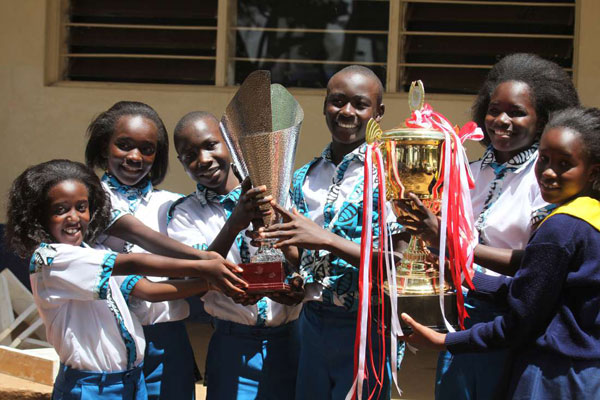
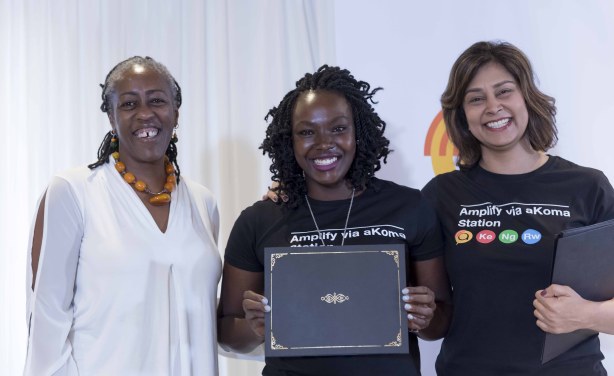
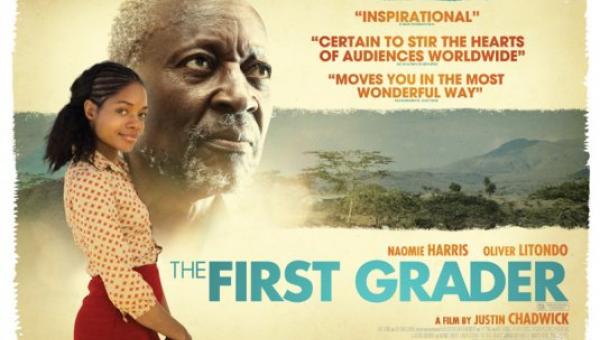
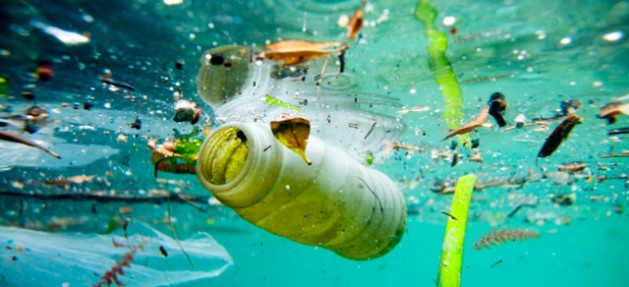


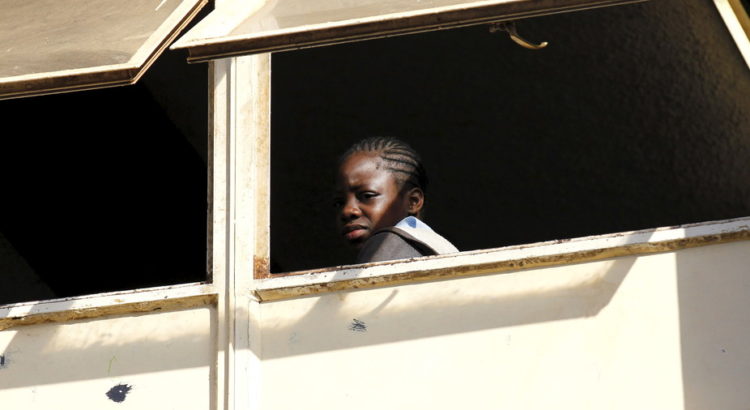






 Users Today : 25
Users Today : 25 Total Users : 35403363
Total Users : 35403363 Views Today : 28
Views Today : 28 Total views : 3332654
Total views : 3332654